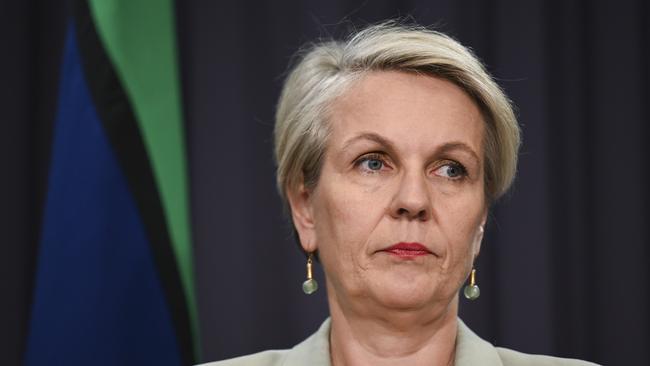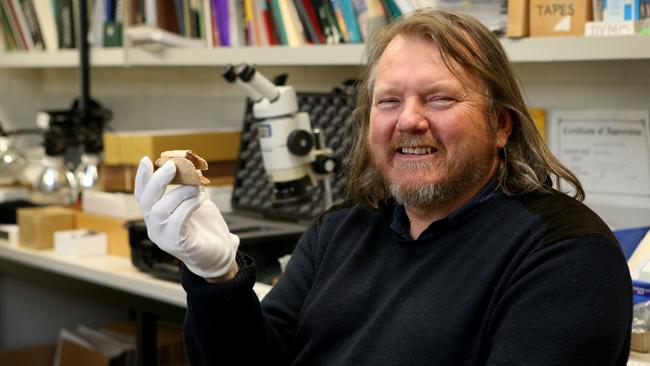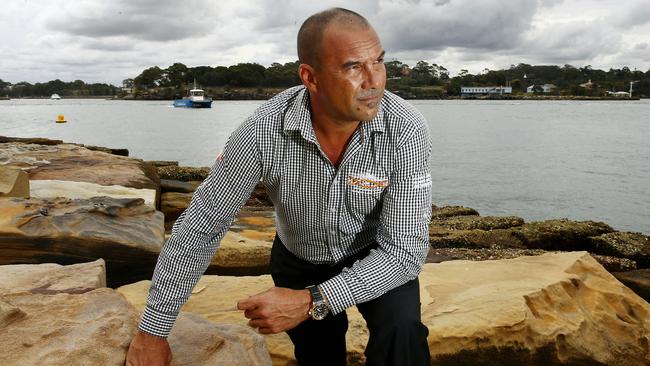Blayney mine fiasco a ‘misuse’ of heritage law; Indigenous, academic stakeholders demand reform
Heritage experts are pushing for a national forum on Indigenous cultural authority as NSW Local Aboriginal Land Councils convene to discuss the Blayney goldmine decision.

Native title holders and traditional owners argue their legislated authority has been treated as a “political football” after the dismissal of the Blayney goldmine proposal, as heritage experts call for a “national forum” on heritage law.
As NSW’s Local Aboriginal Land Councils convene ahead of a truth-telling seminar in Orange on Wednesday, Indigenous and academic stakeholders have slammed state and federal governments for the shoddy application of existing legislation around development applications, and criticised the rollout of reform.
Cultural heritage consultant Giles Hamm said outdated and unclear heritage law would haunt future disputes unless federal, state and territory governments convened to solidify a process.
“It’s going to continue to plague the development industry, unless a national approach is done. Unless governments are genuine about making heritage significance and cultural significance properly defined in legislation and do proper consultation with traditional owners,” Dr Hamm said.
“There needs to be a national forum on how heritage is defined and significance is defined, and what is proper Aboriginal consultation. Because there’s still this problem or tension between federal and state (governments) on what their role is.

“When you see how (Environment Minister) Tanya Plibersek, as a minister, could have accepted such thin claims, then it’s quite alarming.”
A Section 10 heritage submission by the Wiradyuri Traditional Owners Central West Aboriginal Corporation resulted in a tailings dam for the McPhillamys goldmine being blocked, essentially leaving the project on ice. It has reignited debate on what significance should be afforded consultation with stakeholders outside recognised Indigenous bodies.
Dr Hamm argued state governments had largely abandoned their responsibility to reforming Aboriginal heritage law, while the Albanese government “doesn’t even understand its own legislation”.
“There’s been this misuse of Section 10 through the last five to 10 years, because the federal government doesn’t even understand its own legislation,” he said.
“Governments are reluctant to call into question people’s Aboriginal credentials, particularly around cultural knowledge. And what they find is they try and err on the side of supporting Aboriginal people, even though that cultural knowledge is not true.
“State governments have abrogated their responsibility to heritage. They are indifferent … Aboriginal heritage has just been seen as a barrier or obstruction to development. All state governments just want a process where the minister can sign off. And that’s the mentality right now.
“Look at WA as a classic example.”
Dr Hamm also argued a proper definition across jurisdiction of cultural knowledge, tradition and heritage would leave developers and traditional owners on more solid ground, while preventing “green groups” or non-First Nations stakeholders from hitching their wagon to a Section 10 proposal.
Nathan Moran, chief executive of the Metropolitan Local Aboriginal Land Council, which covers Ms Plibersek’s Sydney electorate, said the Blayney decision had eroded the trust of First Nations communities in her constituency.
“We don’t get involved in politicking, I must say. But I’ve heard about it … it has been widely discussed, and it appears there has been an impact,” Mr Moran said.

“It’s pretty sad that we didn’t have a conversation. I’d suggest it would be a good process whereby members of parliament could speak to their local authority, their local land council or native title council. I think we’d all be better off. That hasn’t happened, but the door’s always open.
“Ignorance is not an excuse of the law.”
Mr Moran, who is attending Wednesday’s meeting of land councils, said governments had to understand and adhere to their own legislation.
“The very people who are meant to uphold the law are ignoring their own laws for Aboriginal people and choosing individuals (to consult),” he said.
“I hope one day to get out of being used as a political football for culture and heritage, to be truly respected. It shouldn’t be a game of politics or anything other than just facts, evidence and working with us respectfully.
“There’s got to be an equity in applying law, applying native title, applying land rights, is in the best interest of everyone.”
In 2021, then environment minister Sussan Ley announced the government would collaborate with the First Nations Heritage Protection Alliance to redesign heritage applications.
The plan has made slow progress since, with reform reportedly delayed ahead of the voice to parliament debate. Ms Plibersek in August said she “was working through a process of updating” the existing laws to “talk much earlier to traditional owners or people that have an interest in a project”.
NSW Aboriginal Land Council chair Raymond Kelly said in September cultural heritage had become a “pawn for political posturing and advantage”.
A spokesperson for Ms Plibersek said “the government is continuing to work carefully and methodically on possible improvements to federal cultural heritage protections, building on the process started by the deputy Liberal leader, Sussan Ley, when she was the minister.
“Any updates will be designed to give better protection for cultural heritage while delivering more certainty for business.”




To join the conversation, please log in. Don't have an account? Register
Join the conversation, you are commenting as Logout